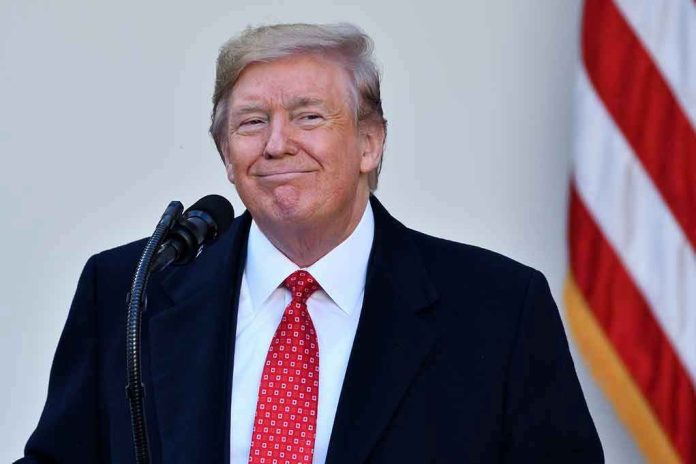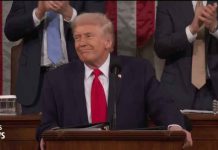
A new policy proposes $2,000 stimulus checks, sparking debate among fiscal conservatives.
Story Highlights
- Trump administration proposes $2,000 stimulus checks funded by tariffs.
- Legal challenges arise as Supreme Court reviews tariff legality.
- Proposal’s timing raises questions of political motivation ahead of midterms.
Trump’s Stimulus Proposal and Its Implications
In a move that has stirred significant debate, the Trump administration has proposed issuing $2,000 stimulus checks to Americans using funds sourced from tariff revenues.
The proposal, announced ahead of the midterm elections, targets middle- and low-income households. However, the feasibility of this plan is under scrutiny due to ongoing legal challenges and questions about its political motivations.
Key stakeholders, including the U.S. Treasury Secretary and the Supreme Court, play crucial roles in determining the outcome of this initiative. The Treasury is responsible for the plan’s implementation, while the Supreme Court’s review of tariff legality could significantly impact funding availability. Meanwhile, Congress may also need to weigh in, potentially requiring legislative approval for the measure to proceed.
The Legal and Political Landscape
The proposal has not yet been implemented, facing legal and logistical hurdles. The Supreme Court’s pending decision on the legality of using tariff revenues for such purposes is a major obstacle. As the midterms approach, the proposal gains media attention, but no checks have been distributed, leaving many questions unanswered.
The timing of the proposal, closely aligned with the midterm elections, has raised concerns about its political motivations. Critics argue that using fiscal measures for electoral advantage undermines the integrity of economic policy. Proponents, however, see it as a necessary relief for financially strained households during an uneven economic recovery.
Economic and Political Impact
If implemented, the proposal could boost consumer spending and potentially increase political support for Trump. However, it also sets a precedent for using tariff revenue for direct payments, a move that could face future legal challenges and fiscal impacts. The broader implications for trade-dependent industries and fiscal policy remain to be seen.
Economists and legal experts continue to analyze the proposal’s viability, with many questioning the sufficiency and sustainability of tariff revenues for such a large-scale stimulus. As the situation develops, the Supreme Court’s decision will be a critical determinant of the proposal’s future.
Sources:
Are Trump Stimulus Checks Coming? – AZCentral


